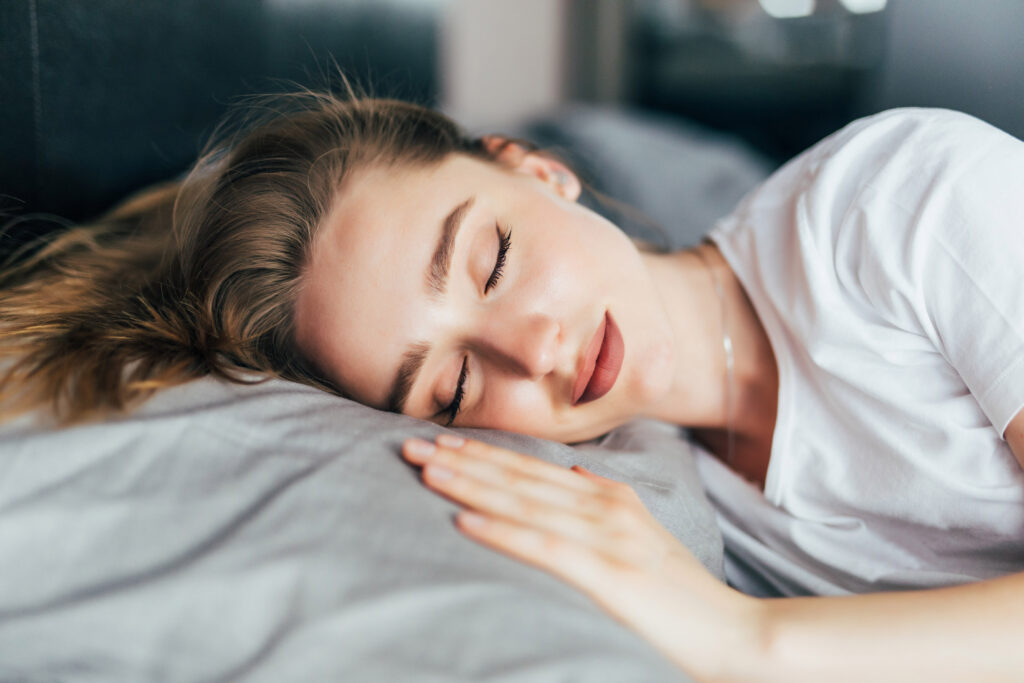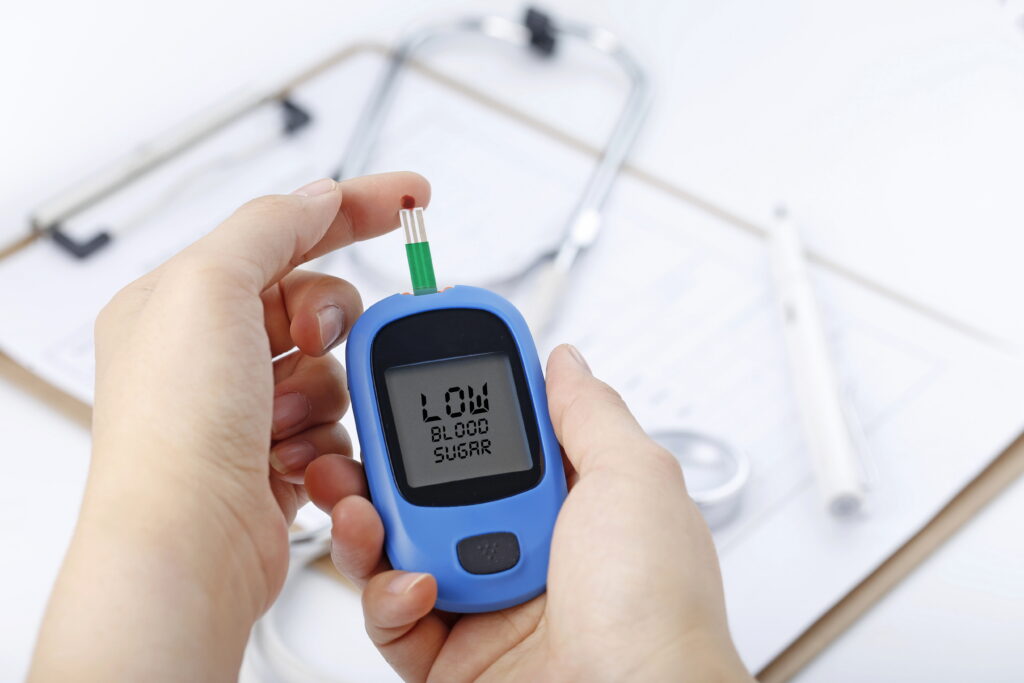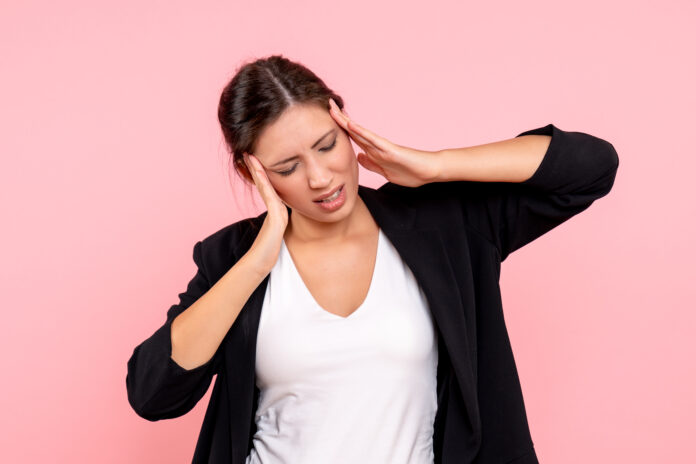If you are at risk of having migraine and want to know how to avoid migraine attack, you just need to know how debilitating the pain can be. In such conditions, you may think of doing any drastic thing to make the pain go away. Therefore, we are here to discuss some simple steps that may help you to lessen the blow of migraine symptoms. Additionally, some changes in your lifestyle may reduce the frequency and severity of migraine attack.
But in case of continuous interference of migraine with your usual activities, you may consult with specialized healthcare professionals.
Understanding Migraine Triggers
A pounding or beating headache is known as Migraine. This is characterized by pain in one side of your head and may last for several hours or days. These pains may be disruptive and may disturb your usual activities. Along with head pain, some other symptoms such as sensitivity to light or nausea are also observed. Before full-blown headaches, these symptoms may arise. So when you notice these symptoms, you can take steps to prevent migraine before they happen.
Identifying Common Triggers
Migraines have a helping aspect to find out key clues or triggers that cause these pains in the head. Studies show that skipped meals, red wine, and stress are the main causes but to find out the actual trigger, you have to track your migraine symptoms by writing in a diary. Start by identifying the practices that you were doing before and when your headache came on. How much sleep did you get or did any stressful incident happen the day before starting a migraine? These key clues help you to identify migraine triggers.
Dietary Triggers About a quarter of migraine patients are diagnosed with dietary triggers. Research has proved that foods containing tyramine and nitrates can lead to these headaches. Triggering diet includes:
About a quarter of migraine patients are diagnosed with dietary triggers. Research has proved that foods containing tyramine and nitrates can lead to these headaches. Triggering diet includes:
- Cheeses
- Red wine
- Nuts
- Chocolates
- Dried fruits
- Processed meats
- Artificial flavoring agents and seasonings.
So if you have a dietary trigger, you must have a food symptoms diary or use a migraine tracking app. According to studies these foods take two to three days to take hold and present with that debilitating pain.
Environmental Triggers
If light sound and temperature influence your migraine attacks, you must be diagnosed with environmental triggers of migraines. A change in climate or weather, a change in altitude or barometric pressure, and a change in your routine are also environmental factors that trigger your migraine attack. Heat, sound, intense smell, sunlight reflections, glare, or fluorescent lights are also categorized as environmental triggers.
Weather changes affect your body’s chemical balance and sensitive people get migraine attacks due to these sudden weather changes.
Hormonal Triggers
Women are more affected by migraines than men because females have hormonal triggers that cause migraine in them. Menstrual cycle, menopause, and contraceptive pills are the most drastic triggers of migraines in females.
Not just your periods but the whole menstrual cycle is linked with biological changes in women’s bodies. Drop in estrogen level is also associated with menstrual cycle, and is a great trigger of migraine just before your periods start. Similarly, in women, migraines get worse during menopause but varies person to person.
Lifestyle Modifications for Migraine Prevention
It must be clear that migraine is a genetic disease but you have a chance to eliminate or reduce its attacks by making some lifestyle changes. Everyone’s experience with migraine is unique but avoiding some routine practices and bringing some modifications in your lifestyle can make it less likely you will have an attack.
Managing Stress As we all go through ups and downs in our day-to-day lives, managing stress is a compulsory part of life to avoid migraine attacks because stress is a trigger for migraine attacks. You may find guidelines for relaxation techniques from helpful apps like Headspace. By practicing mindfulness meditation exercises and deep breathing techniques you may get relief from this pain.
As we all go through ups and downs in our day-to-day lives, managing stress is a compulsory part of life to avoid migraine attacks because stress is a trigger for migraine attacks. You may find guidelines for relaxation techniques from helpful apps like Headspace. By practicing mindfulness meditation exercises and deep breathing techniques you may get relief from this pain.
According to DR. Starling, limiting your time for watching TV. or reading news can be helpful to reduce stress. Keep it thirty minutes in the morning and thirty minutes at night, to keep you safe from getting stressed. He says “Activities that may decrease your stress levels like exercise, meditation, and breathing lessen stress from your life, and making these useful changes in your lifestyle has a significant impact on your migraine management.
Establishing Healthy Sleep Habits
 Your sleep is affected by migraine attacks and these pains make it hard to have a peaceful sleep. People with migraine attacks cannot sleep well and it can trigger more migraine attacks. So good and peaceful sleep is a great tool to manage migraines. A constant sleep schedule i.e. regular bedtimes and number of sleep hours will help you to reduce these pains. According to researchers 7 to 8 hours of sleep a day is enough but the key to effectiveness is consistency. A consistent sleep routine is more effective. Good sleep hygiene also affects your migraine pains. Avoid using tablets, laptops, or TVs in your bedroom because screen time activates the brain and makes it hard to fall asleep. Create a cool, dark, and peaceful environment for having a deep sleep.
Your sleep is affected by migraine attacks and these pains make it hard to have a peaceful sleep. People with migraine attacks cannot sleep well and it can trigger more migraine attacks. So good and peaceful sleep is a great tool to manage migraines. A constant sleep schedule i.e. regular bedtimes and number of sleep hours will help you to reduce these pains. According to researchers 7 to 8 hours of sleep a day is enough but the key to effectiveness is consistency. A consistent sleep routine is more effective. Good sleep hygiene also affects your migraine pains. Avoid using tablets, laptops, or TVs in your bedroom because screen time activates the brain and makes it hard to fall asleep. Create a cool, dark, and peaceful environment for having a deep sleep.
Maintaining Stable Blood Sugar
 The habit of delaying meals for a long time, eating fast or irregularly, and skipping meals are the cause of disturbed blood sugar levels. Moreover, an imbalanced diet is a major cause of elevated blood sugar. By eating a balanced diet including lean proteins, fibers and healthy fats along with limiting processed foods help you to steady your blood sugar levels. Maintaining blood sugar levels saves you from migraine attacks because new research has shed light on the link between migraine and blood sugar-related traits on a genetic basis. Many reports are under observation that support the co-occurrence of migraine and blood sugar level imbalance. New researchers have found a potential causal relationship that may open the way for the development of new treatment options.
The habit of delaying meals for a long time, eating fast or irregularly, and skipping meals are the cause of disturbed blood sugar levels. Moreover, an imbalanced diet is a major cause of elevated blood sugar. By eating a balanced diet including lean proteins, fibers and healthy fats along with limiting processed foods help you to steady your blood sugar levels. Maintaining blood sugar levels saves you from migraine attacks because new research has shed light on the link between migraine and blood sugar-related traits on a genetic basis. Many reports are under observation that support the co-occurrence of migraine and blood sugar level imbalance. New researchers have found a potential causal relationship that may open the way for the development of new treatment options.
Managing Sensory Triggers
One of the leading causes of migraines is sensory overloading. The world is full of overloads that disturb our brain such as sounds, smells, and sights. Just a spray of an unpleasant fragrance perfume can turn your surroundings from manageable to “too much”. Tricks to avoid sensory triggers for migraine can give you relief from these attacks.
Sensory triggers are the results of overstimulation of your body’s senses that may make it challenging for people living with migraine. Sometimes, sensory triggers become active due to touch, and strong odor, loud noises, screens, bright lights, or overcrowded areas and that’s why people with migraine have increased sensitivity to external stimuli. Some symptoms of Sensory overloading:
- Sleeplessness.
- Irritability.
- Stress.
- Difficulty in focus.
- Discomfort.

You may avoid these triggers to prevent migraine by following the tricks discussed below:
- If you have a problem with light intensity, you must use indoor precision tinted glasses that have a special tint that blocks painful wavelengths of coming artificial light.
- Use anti-glares to convert your computer screen or mobile to reduce strain on your eyes.
- To Avoid loud sounds or noise, use noise-canceling headphones to keep yourself calm.
- Create a fragrance-free zone to live peacefully, in case of having smell-related migraine triggers. Avoid going to crowded places, restaurants, waiting rooms, or construction sites.
Hormonal Management
In women, hormonal disturbance due to menstruation or menopause is the cause of migraine attacks. Fluctuation in hormones especially estrogen during a lifetime can trigger headaches leading to migraines but the symptoms and their severity differ from person to person. Changes in estrogen levels at the start of periods are more severe than at other times of the month. In addition, these fluctuations in hormone levels after giving birth or in menopausal transition also prove worse and cause frequent migraine attacks. The last six months of pregnancy are very difficult for women with excessive rise and fall of hormones leading to severe grain attacks.
Understanding Hormonal Triggers
Two days before periods and the first three days of flow majority of women experience more menstrual migraine attacks because the fall in estrogen level causes longer attacks that may prolong the end of the period. Sometimes, women also feel these attacks even after periods. So always keep a check on the date of periods, timing, and specific symptoms appearance so that you may consult a doctor in case of worsening of symptoms.
Menopause and Migraine
Menopause is a sign of stability in hormonal fluctuations. At this stage of life most of the women feel a decrease in migraine attacks but the menopausal transition stage, called perimenopause, can bring severity to symptoms of migraine. This happens due to irregular periods during perimenopause and hormonal fluctuations become unpredictable. And the sudden decline of estrogen levels triggers severe migraine attacks.
Hormonal Therapies
HRT are medication that is made with female hormones and is generally used to treat menopausal symptoms. Hormone Replacement Therapy replaces some hormones that have a fall during the transition of menopause. These pills are taken vaginally through a spray, cream, or vaginal ring. However, HRT is not useful for all women. Hormone Replacement Therapy has risk factors of heart attack, breast cancer, blood clotting, and strokes but depends on age, health, and type of therapy. So it’s important to consult a healthcare professional to determine if this therapy is useful for you.
Medication and Supplements
migraine, the throbbing, pulsing headache can spoil your routine life. Medications are available to manage this issue but they have side effects. Therefore people with migraine like to use natural ingredients for the treatment or management of migraine attacks. New research has proved that supplements containing vitamins, minerals, herbs, amino acids, and enzymes help to manage this throbbing headache. But always keep in mind that all naturals are not safe, so discuss with your doctor before using any supplement for this purpose.
Over-the-Counter Options Migraine treatment doesn’t need a prescribed medication. Over-the-counter medicines are used worldwide and work well for their management. Some kinds of pain relievers are considered best if you take them at the start of a migraine attack because your body takes time to absorb the medicine. Many pain relievers are sold over the counter including Acetaminophen and non-steroidal anti-inflammatory drugs ( NSAIDs) such as Aspirin, caffeine, Ibuprofen, and naproxen. Moreover, anti-nausea drugs are also helpful to manage these pains.
Migraine treatment doesn’t need a prescribed medication. Over-the-counter medicines are used worldwide and work well for their management. Some kinds of pain relievers are considered best if you take them at the start of a migraine attack because your body takes time to absorb the medicine. Many pain relievers are sold over the counter including Acetaminophen and non-steroidal anti-inflammatory drugs ( NSAIDs) such as Aspirin, caffeine, Ibuprofen, and naproxen. Moreover, anti-nausea drugs are also helpful to manage these pains.
Lifestyle Support and Therapy
At the start of a migraine attack, close your eyes and turn off the lights, you will feel better. Pain can be lessened or vanish by crawling under the covers at the initial stage of migraine attack. In addition, try to leave all work and shut down your Britain unless the headache goes away.
People with migraine can’t work well with this pain and it is hard to explain that migraine is an invisible illness, and you are unable to make it possible for anyone around you to see how much pain you are bearing. So try these tricks to avoid this unbearable pain.
- Manage Stress.
- Control the Triggers.
- Turn the Volume Down.
- Remove Strong Odors.
- Be Mindful with Your Diet.
- Find An Escape Room.
- Include Light Exercise in your routine.
Biofeedback Therapy This is an effective therapy to protect your nervous system before it responds to migraine. Research shows that temperature biofeedback is a more effective way to prevent migraine attacks without any side effects. In this way, you have to warm up your finger’s temperature while listening to soothing music. Biofeedback has many advantages including, stabilizing the sensitive nervous system during the interictal period. It will lessen the frequency of migraine and increase your sense of control.
This is an effective therapy to protect your nervous system before it responds to migraine. Research shows that temperature biofeedback is a more effective way to prevent migraine attacks without any side effects. In this way, you have to warm up your finger’s temperature while listening to soothing music. Biofeedback has many advantages including, stabilizing the sensitive nervous system during the interictal period. It will lessen the frequency of migraine and increase your sense of control.
Conclusion
Some triggers cannot be changed or controlled such as barometer changes or weather sensitivity and these conditions must be discussed with a specialist doctor. According to new research, medicines to prevent migraine attack are available that may limit the frequency of migraine and ease the pains but these may be life-changing. But be careful about taking acute migraine medications as their frequent use may lead to rebound headaches.
Last but not least, if you are not sure about the symptoms or triggers of your migraine attack, you must see a neurologist. He will prescribe the correct medication for your headache.







